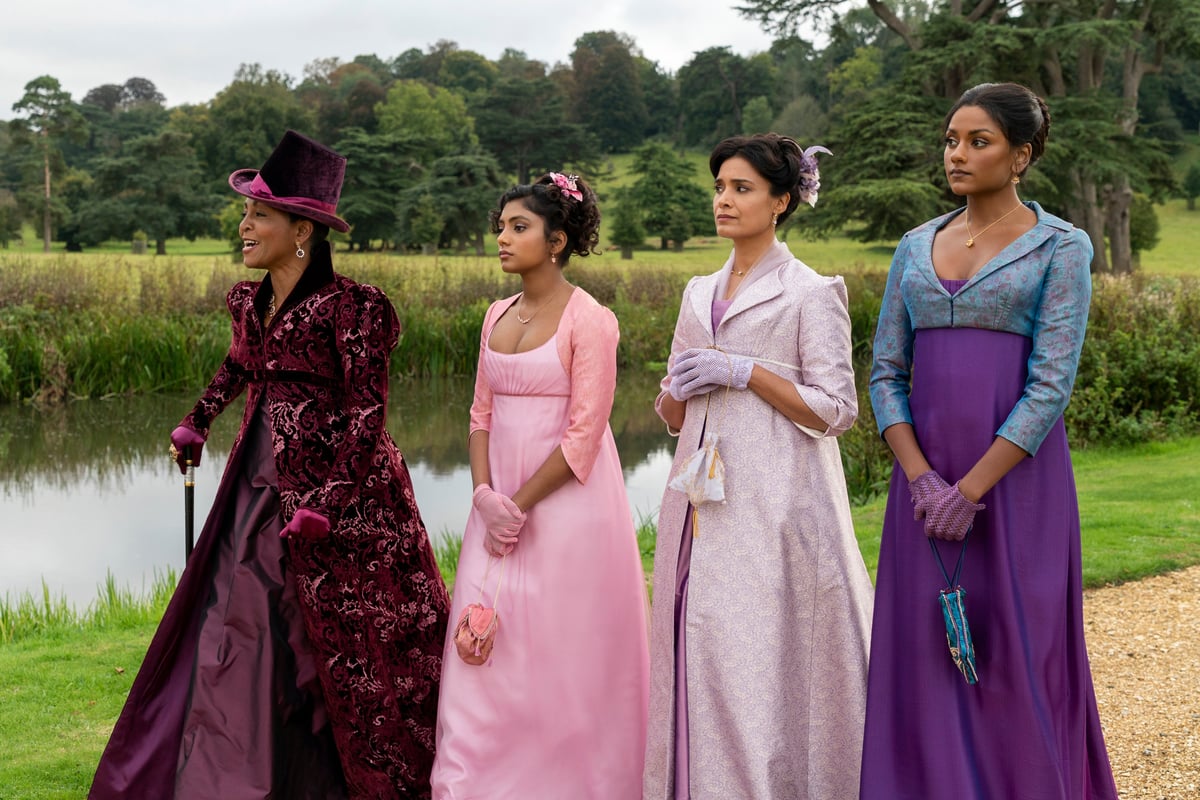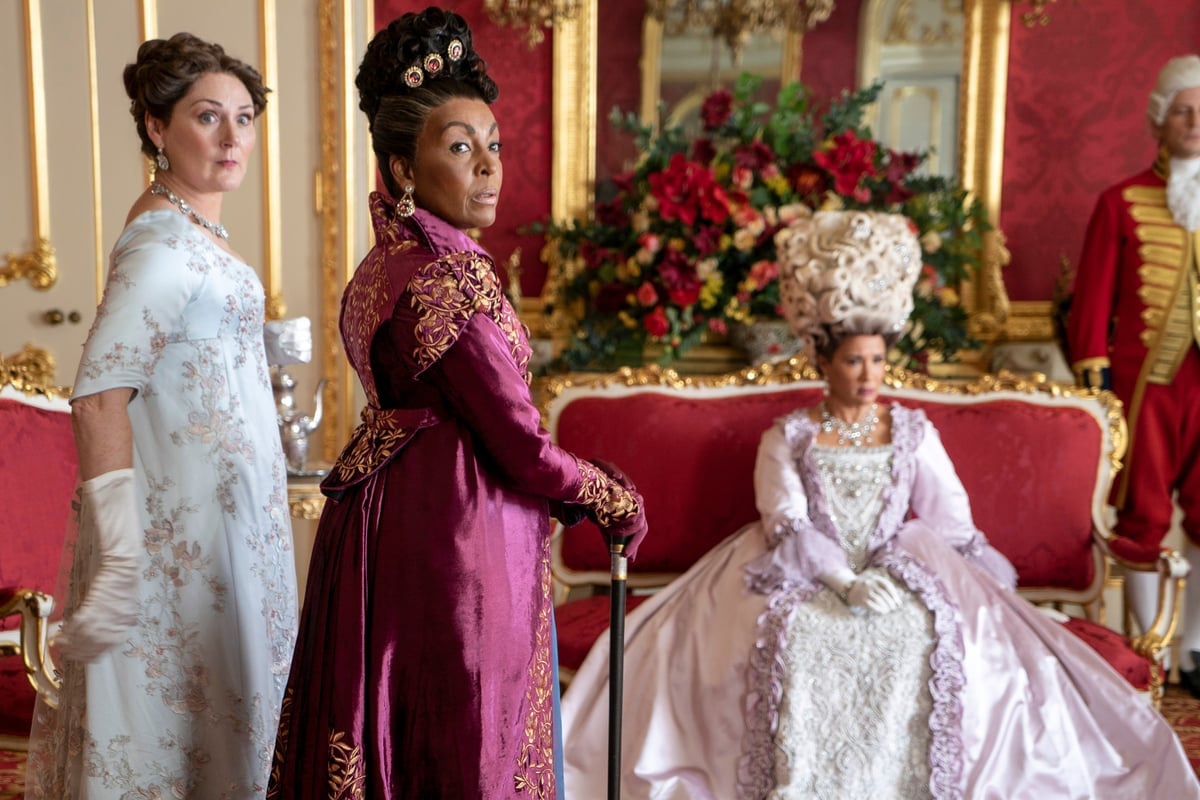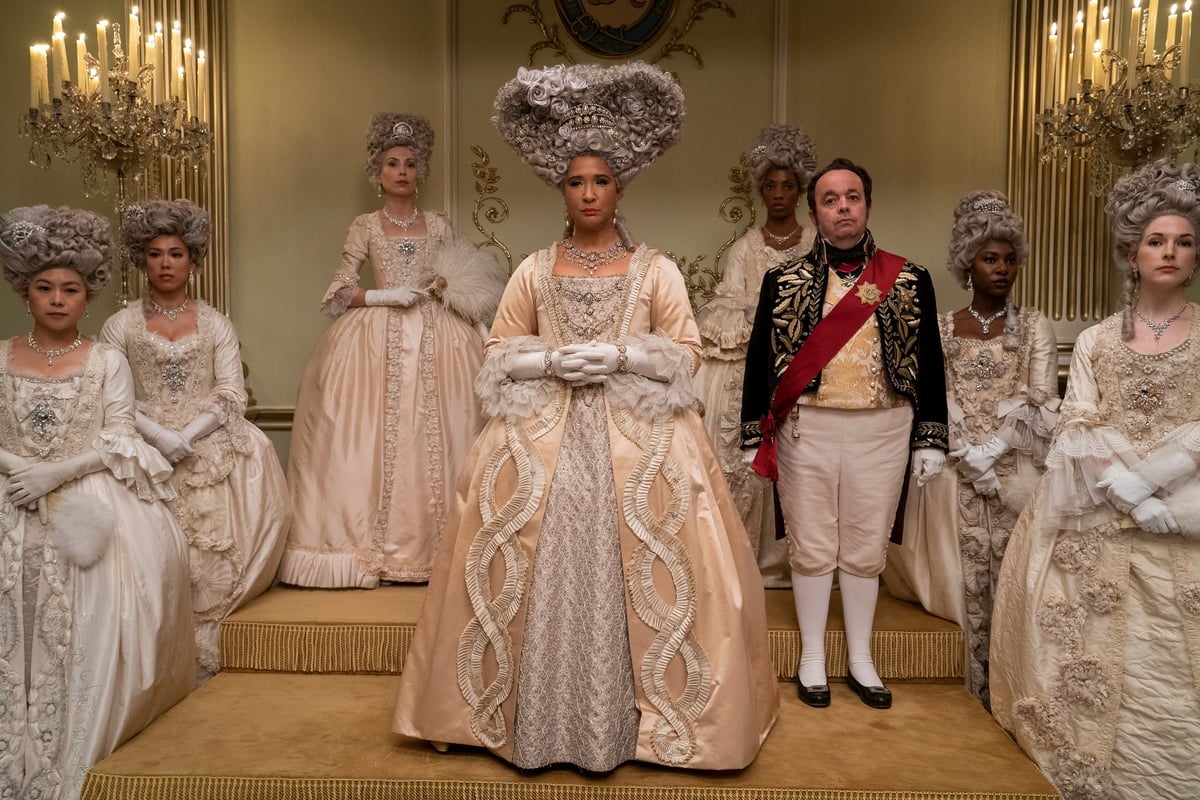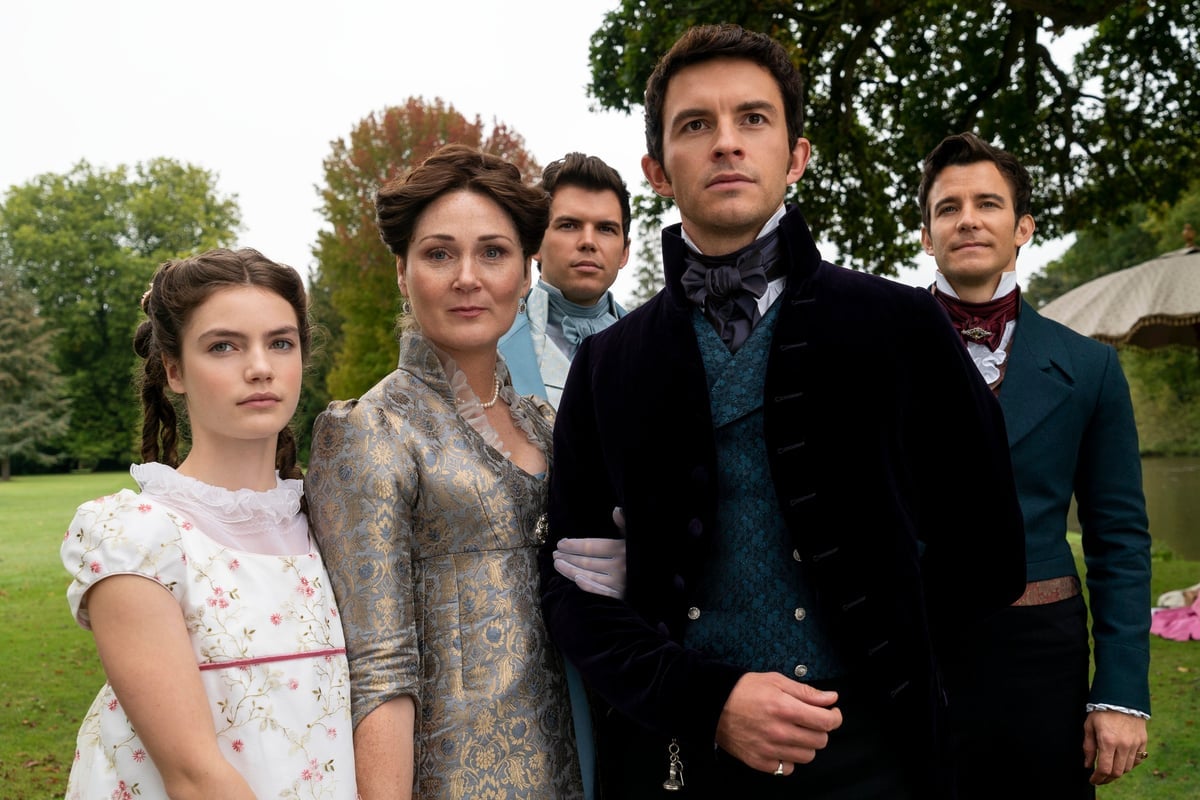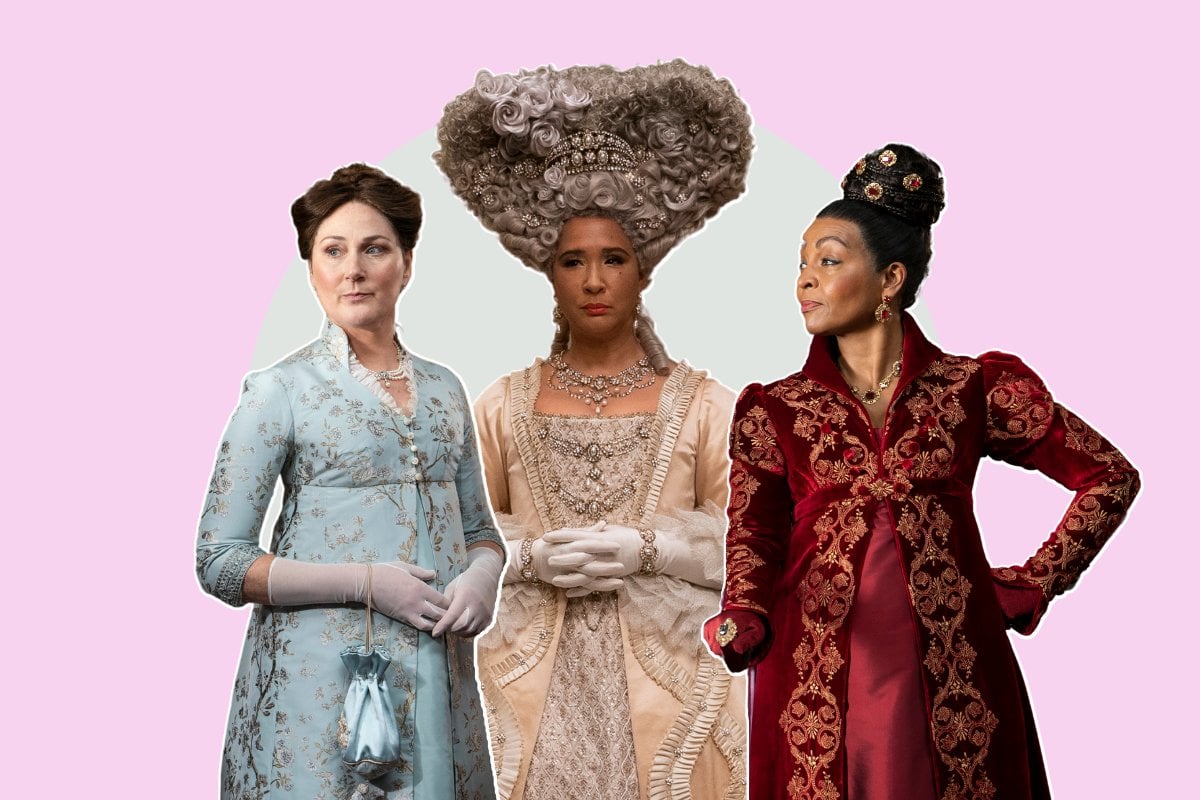
Bridgerton is a perfectly balanced mix of everything that makes for escapist content.
There is sex and romance, wrapped up in timeless tropes like 'enemies to lovers' and 'fake relationship turns real'. There are pretty costumes, gravity-defying wigs and fancy decor. There is gossip. Lots of gossip. There is even modern top 40 hits reimagined by string quartets.
It really is no wonder the show has become one of Netflix's greatest hits.
Most of us come for the two main storylines: the (sometimes raunchy) love stories of the Bridgerton siblings, and the relentless whispers from London's Regency-era Gossip Girl, Lady Whistledown.
Watch: The Bridgerton season two trailer. Post continues below video.
Along the way, we've been charmed by smaller plot points like Eloise Bridgerton's displeasure with high society life and the constant scheming of the Featherington family.
Mostly, it's a low-stakes, high-reward watch. But now that we're two seasons in, I've come to a realisation. I believe the true heart of the series is in a less overt theme pulsing throughout: the agency of its women.

